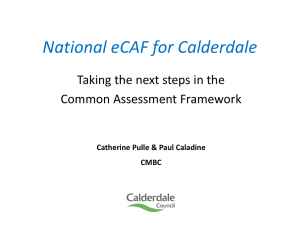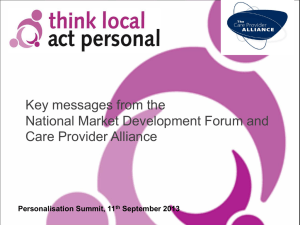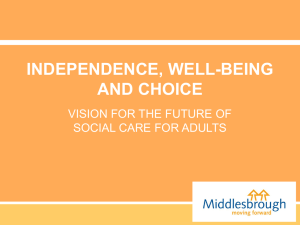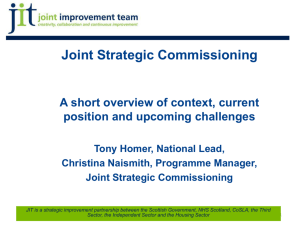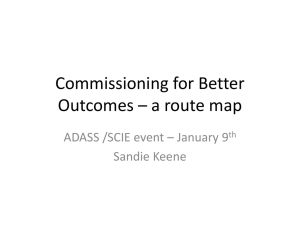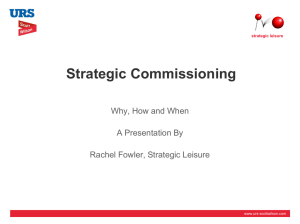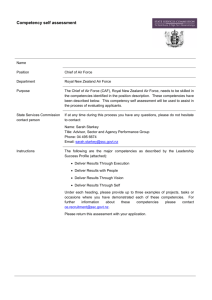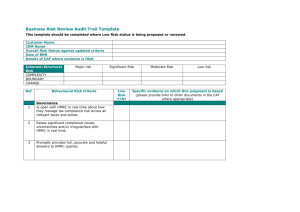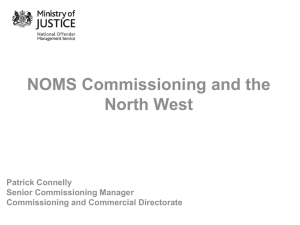Integrated-Systems-Slides - Early Intervention Foundation
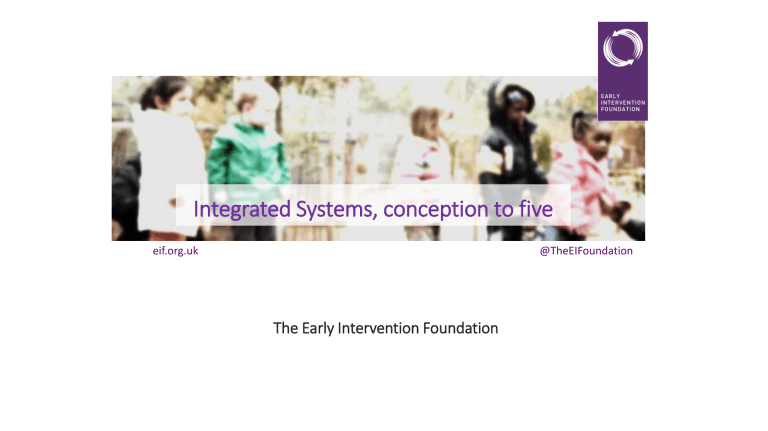
eif.org.uk
Integrated Systems, conception to five
@TheEIFoundation
The Early Intervention Foundation
Integrated Systems for EI -conception to five
• What makes an effective integrated system?
Accountability
Commissioning planning
Programmes Delivery
Support
Systems
Workforce User
• OBR review, effective systems
• Initial review on programmes
• Outcomes
• Data collected by completion of template, follow up calls, three deep dives
• 18 Places identified this as a priority
• 14 returned completed templates/accepted offer of a phone interview
Integrated Models
Range of models
• Children Centre based, a number are reviewing commissioning of CC
• Locality teams
• Virtual/co-located
Workforce / Management Structures
• VCS, EI, family support, HV,MH support, Job centre plus in CC
• Most of HV now based in community, Worcestershire currently based in GPs surgeries
• Swindon - Single management structure, HV, FNP, SALT, SN, education welfare, Ed
Psych, TAMHS, families first. Locality teams
Delivery
Identification & Assessment
• All Places had the basis of a CAF process to assesses need across partner agencies
• Birth data
• Essex, Herts, Solihull - 2 year entitlement
• Essex – developed CAF to Family Facilitated Meeting
• Hertfordshire – Team Matters Meeting to discuss CAFs
• Westminster review families of concern at a monthly meeting between health and CC, including 2 year development review
• 2 Places referred to the quality assessment of CAF process
Access to Interventions
• TAF approach to integrated interventions
• Single point of access
• Essex - Early Help Hub
Support Systems
Current position
• Integrated information IT sharing systems very limited
• 9 Places had local information sharing agreements and processes in place to share live birth data
• Individual info shared through CAF process was more common
Examples of promising practice
• Herts - use of NHS number by CCs for 2,3, and 4yr olds free place
• Swindon - access to IT systems
• Dorset - locally developed eCAF
• Islington - additional info shared with CC on housing and benefits
Lessons learnt – What Places have told us
Communication
Data sharing is crucial
Effective partnership
Cultural change takes time
Build professional trust, team building, acknowledge
“Hearts and Minds” careful consistent communication across teams
Common vision and outcomes
Culture
Leadership, commissioning, operational
Manage independencies when with whole system change persistently revisit and define basic principles of integration e.g. shared outcomes, governance, tools, protocols and user pathways.
Time
Barriers
• Data sharing
• Present accountability and governance arrangements predominantly drive organisations and reduces focus on integration
• Capacity of workforce
• limited joint training opportunities
• Capacity for development and evaluation
• Fragmentation of commissioning, Range of employers
• Financial remodelling required
• ICT
• Difficulties arising from co-location in some areas such as H&S issues for infection control
• Lack of GP involvement in 0-5 integration
• During health transition 2012 a number of previous agreements lost, info sharing, commissioning and some co-location
